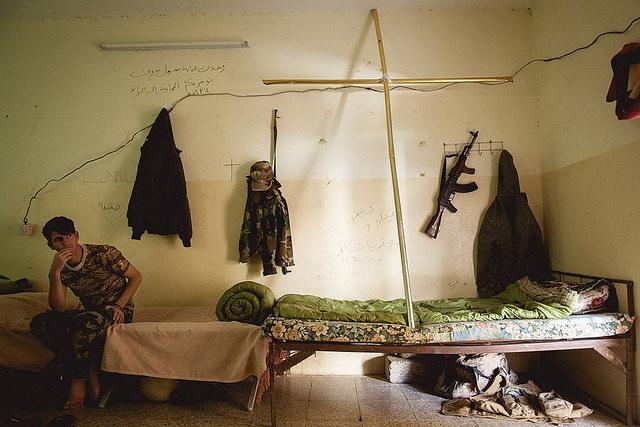
The Beat
International tax cooperation high on the agenda
Six months after the scandalous Panama Papers leaks, the Republic of Panama has signed the Multilateral Convention on Mutual Administrative Assistance in Tax Matters, becoming the 105th jurisdiction to join the tax transparency pact. The OECD and the Council of Europe have jointly developed the convention and aspire for it to become the ‘leading global instrument for tax co-operation around the world’, facilitating standardised information sharing to combat corruption, money laundering and tax evasion. The signing comes ahead of the Global Forum on Transparency and Exchange of Information for Tax Purposes in Tbilisi, Georgia from 2–4 November.
Cracking down on corruption
South African President Jacob Zuma is taking heavy fire from the usually non-partisan Nelson Mandela Foundation, which has accused his administration of ‘compromising our democratic state and looting its resources.’ The non-profit issued the sharp rebuke following Zuma’s latest attempt to suppress an anti-corruption report, which is investigating allegedly corrupt ties between the powerful Gupta family and those in the senior echelons of South Africa’s government.
Ukrainian anti-corruption reforms have produced some disquieting disclosures. Over 50,000 public officials completed the mandatory online declarations, revealing a considerable wealth disparity between themselves and the general public. Items declared included land, cash reserves, luxury cars and even Fabergé eggs. Unsurprisingly, Ukrainian MPs elected to forego a pay rise following the embarrassing revelations.
CT Scan
Far-right resurgence
Alleged Australian far-right extremist Phillip Galea faced court on Monday after being charged under terrorism laws in August. According to Andrew Zammit, while violent right-wing extremism is nothing new in Australia, ‘the current case appears to be the first time, since terrorism offences were introduced in 2002, that authorities had the sort of evidence against a suspected far-right violent extremist that would enable terrorism charges’. We’ve also seen the resurgence of the far-right further abroad. For a Euro-centric take see Raffaello Pantucci’s article for The Guardian, and for an examination of how the American far-right has rallied behind Donald Trump, check out this piece by J.M. Berger.
Eye on the ball
As Iraqi forces break through the outskirts of Mosul, US policymakers are already eyeing a push on Raqqa, the de-facto capital of the Islamic State. Officials are worried Raqqa will be used as a staging point for Daesh attacks further abroad as the group loses its grip on territory. Analysts are also concerned that efforts to divert Iraq’s predominately Shi’a Popular Mobilization Forces (PMF), away from Mosul and to the town of Tal Afar may cause additional problems. The town sits on a key route connecting Syria and Iraq, and was the scene of intense sectarian violence from 2005–2007. The Wilson Center’s Gareth Stansfield explains Tal Afar’s strategic importance to Daesh, and how the town’s large Sunni Turkmen population could stoke Turkey–Iraq tensions, particularly if fighting takes a sectarian turn.
Checkpoint
Turkey–Iraq border build-up
Turkey is amassing heavy armour, including tanks and armoured vehicles, in the town of Silopi, close to its border with Iraq. Turkey’s defence minister Fikri Işik has stated that the deployment is in response to ‘important developments in our region,’ citing the ongoing fight against Kurdistan Workers’ Party militants in the region. Another crucial factor is the abovementioned PMF offensive to retake Tal Afar. President Erdoğan has cautioned that Ankara will have a ‘different response’ if the militias ‘cause terror’ in the city. In response Iraqi Prime Minister Haider al-Abadi issued a stern warning against Ankara’s mobilisation, saying ‘the invasion of Iraq will lead to Turkey being dismantled’.
Australia’s latest round of border security
The Coalition government is moving to implement a lifetime ban on asylum seekers in Nauru and Manus Island from entering Australia. Prime Minister Malcolm Turnbull has stated that the new law will ‘send the strongest possible signal… the door to Australia is closed to those who seek to come here by boat with a people smuggler’. Immigration minister Peter Dutton has sought to allay fears on how the law would affect asylum seekers with families, stating that ministerial discretion could be used to prevent family separation on a case-by-case basis.
First Responder
Air pollution’s no mist-demeanor
On 31 October the United Nations Children’s Fund released its new report (PDF), titled Clear the Air for Children. The report’s findings indicate that ‘around 300 million children currently live in areas where outdoor air pollution exceeds international guidelines by at least six times.’ The authors recommend further pursuing green energy options, improving ventilation throughout living areas, providing affordable healthcare to improve children’s resilience, and better monitoring the air for signs of pollution. The report’s release comes as New Delhi’s Diwali festival firework celebrations caused the level of air pollution in the city to skyrocket (!) and as ongoing fighting in Iraq continues to contribute to high levels of air pollution.
Fault lines
Italy has suffered another round of earthquakes over the past week, including a 6.6 magnitude quake on Sunday and a 4.8 magnitude quake on Wednesday. Remarkably, no one was killed, though several historic buildings in the city of Norcia were damaged or destroyed. The Apennine Mountains in Italy sit atop a series of complex fault lines, and analysts are concerned that earlier quakes in August have damaged two faults in the Apennine system (Laga and Vettore), increasing the likelihood of additional tremors.